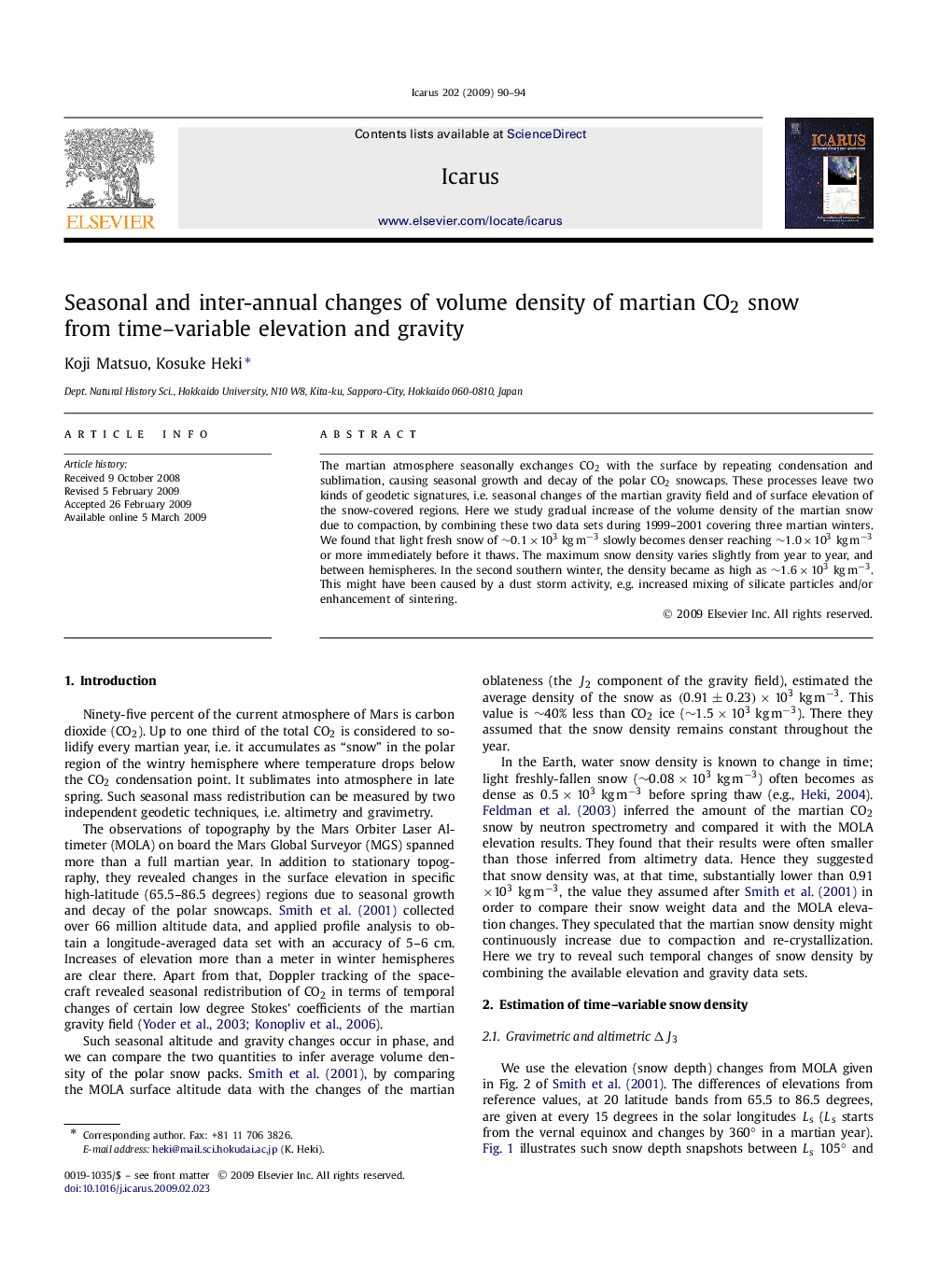| Article ID | Journal | Published Year | Pages | File Type |
|---|---|---|---|---|
| 1775101 | Icarus | 2009 | 5 Pages |
Abstract
The martian atmosphere seasonally exchanges CO2 with the surface by repeating condensation and sublimation, causing seasonal growth and decay of the polar CO2 snowcaps. These processes leave two kinds of geodetic signatures, i.e. seasonal changes of the martian gravity field and of surface elevation of the snow-covered regions. Here we study gradual increase of the volume density of the martian snow due to compaction, by combining these two data sets during 1999-2001 covering three martian winters. We found that light fresh snow of â¼0.1Ã103kgmâ3 slowly becomes denser reaching â¼1.0Ã103kgmâ3 or more immediately before it thaws. The maximum snow density varies slightly from year to year, and between hemispheres. In the second southern winter, the density became as high as â¼1.6Ã103kgmâ3. This might have been caused by a dust storm activity, e.g. increased mixing of silicate particles and/or enhancement of sintering.
Related Topics
Physical Sciences and Engineering
Earth and Planetary Sciences
Space and Planetary Science
Authors
Koji Matsuo, Kosuke Heki,
